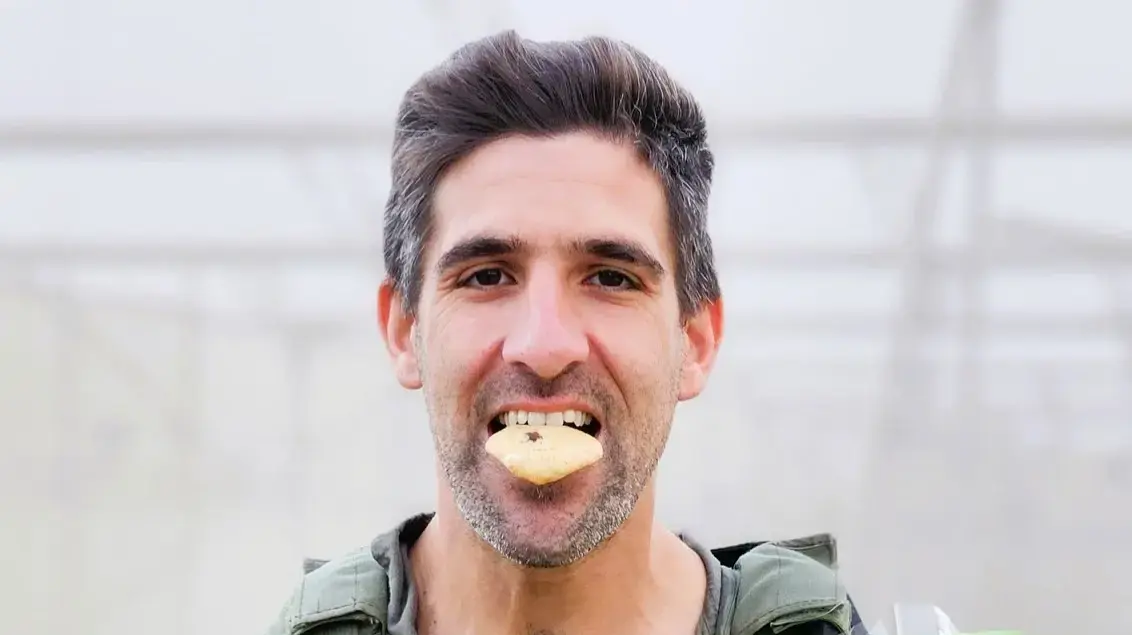Bohbot fan/courtesy of those photographed
In my military service I was a soldier in the Golani in the 12th battalion and I finished my service as a sergeant of the soldiers' platoon.
I was diagnosed with type 1 diabetes 5 years ago, at the age of 31, after several significant years in the reserves as commander of a combat division in the 5053rd Battalion of the Bekaa Brigade.
I immediately informed my commanders and since we are not a maneuvering brigade (that is, we only occupy lines and do not enter Gaza or Lebanon for long operations), they allowed me to continue my services.
I believe that as a mature person they trust me that if I feel that diabetes is endangering me or my soldiers, I will warn them beforehand and will not continue my duties or engage in a certain activity.
The last thing I want is for my soldiers to mess with me instead of fighting.
First, it is very important for me to state that I am not a hero or some kind of inspirational figure.
I'm just trying to raise awareness of the disease, and show that my diabetes is omnipotent.
Mostly I want to encourage young guys who are in this situation.
How to keep sugar balanced in the army in three parts
Since the war broke out, many people have asked me how I manage to keep my diabetes in balance with the battle rations and all the stress of fighting.
You may be surprised to hear, but for me it is easiest to be in a balanced sugar state in the IDF. To explain, I will divide it into three parts, like everything good in the army.
1. In the routine (which we reached only after three weeks since the jump on October 7):
when there is a base Orderly and a dining room, it's very, very simple. We eat meals at fixed times. Vegetables, proteins and carbohydrates, which are always available. My agenda in terms of meals is fixed, in the morning - salad, cheeses and eggs, and if there was any, then also tuna. At lunch - meat meat meat and as much as possible , and in addition salad and tahini (occasionally I also sinned with a little extra carbohydrate). In the evening - if I have dairy, then as in the morning. If I have meat, then as in the afternoon.
2. In an emergency:
there are plenty of battle rations. Battle rations have tuna and peanuts and that was my diet for the most part . If the emergency had lasted too long, I probably wouldn't have continued because I don't think living on tuna and peanuts for a long time is very healthy. Fortunately, there were only two or three days with "emergency nutrition" and that's the reason for part three.
3. War diet, or In other words - thank you to the people of Israel for the donations:
there was no lack of food at all wherever we went. Every evening on the fire, pizzas or salads.
In the morning and at noon people would bring crazy sandwiches and all the good things of the land.
When it was on the fire I only ate the meat and the salads.
When there were sandwiches, I only took the filling of the sandwich.
There were plenty of spares so I would eat 4-5 "reserves".
In short, about 80% of the time in the reserve I was very balanced.
Sensor, available insulin and date snacks
How do you measure sugar and store insulin in reserve?
Two measures helped me keep my sugar balanced throughout the reserve period.
The first is my sensor (from Dexcom, if you insist on knowing), which measures my sugar levels 24 hours a day and alerts me in advance if my sugar is going to rise or fall.
The second - the insulin pens (one open, two closed).
The open ones can be left at room temperature, the closed ones were in my pocket or vest.
In the vest, I regularly kept two packets of glucose candies and two date bars, so there is no worry of getting into a state of hypoglycemia (a sharp drop in blood sugar).
All my soldiers and the commanders know that I have diabetes and know what the treatment is if necessary, they always supported me and always made sure I had what I needed.
I took the insulin from home in a small cooler with ice and always found a refrigerator to store it.
All other consumable equipment was always in my bag with spares for at least a month ahead.
More in Walla!
KKL-Junk encourages climate studies through scholarships for young students
In collaboration with KKL-Junk
Adrenaline spikes the sugar
In the reserves you can see how much the mental state affects the sugar values.
The mental state mainly affects sugar rises and not falls.
In every operational activity we had with high adrenaline, especially during arrests, the sugar would climb to the 220-270 area and it would take about 12 hours for it to come down to a balanced state.
After a few activities I figured out how to manage it more correctly and I would inject three units minutes before the arrest started, then I was balanced for the most part.
Diabetics can do anything, and they won't work on you.
We are sick, there is no need to deny it, but only we choose whether to live healthy or not and this is the "advantage" of diabetes over any other chronic disease.
More on the same topic:
The war in Gaza
diabetes mellitus

